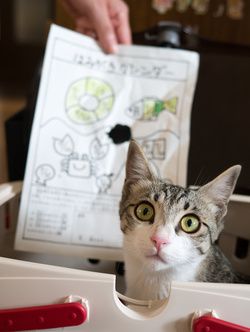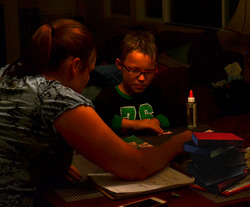
A couple of points to remember may make life easier:
Kids, around the age of 10, are entering adolescence and it's their job to become independent...of you! Be mindful of approaching them. Avoid the word "help" as it makes them feel incompetent. Even if they don't know how to do the assignment, they're not going to confess. They're not as easy to "help". Make a plan before you get into the heavy homework periods that are quickly coming up.
Protein snacks are best, but some sugar is also helpful as they won't feel as deprived. They're still doing schoolwork after working all day and frankly, it's not all that thrilling. Make it easy for them to make it across the finish line by setting up a basic reward system for them showing a genuine effort and a positive attitude. Negotiate when they'll get their reward. Some kids need it daily and others, at the end of the week. Yes, I know that school is the work of kids, but I'd choose a reward system over fighting any day.
Establish a cut-off time. Kids who don't get enough sleep, don't learn, so why bother with late night homework? If the homework period is too intense, reach out to the teacher and explain the incomplete assignment. If your child has learning difficulties, a Section 504 Plan to get accommodations such as extended homework time is helpful.

Allow your child to work in several areas. English homework is on the bed, math is on the floor and history is on the desk. They can move from one to the other to increase dopamine flowing which is the source of motivation.
The adolescent brain is very hungry for stimulation. They may need music in their ears, but if they're on the computer, they're likely to get distracted. Set aside a specified time frame to use the computer for homework.

Organize the homework by estimating how long each task may take. The "hidden" goal is to help your child learn time management. Write the time they estimated on a post-it.
Have them decide which assignments are "easy peasy" that they can do alone.
Decide which tasks require "drive-by" assistance from you.
Decide which tasks need "close quarter" supervision.
This approach allows them to be as independent as possible and frees you up to take care of evening responsibilities or to help another kid.

Give them chances to develop a plan, refine it, make mistakes, get themselves jammed up and oftentimes, fall down. It's OK, "fall seven times, stand up eight".
Go get 'em....
Claudia




